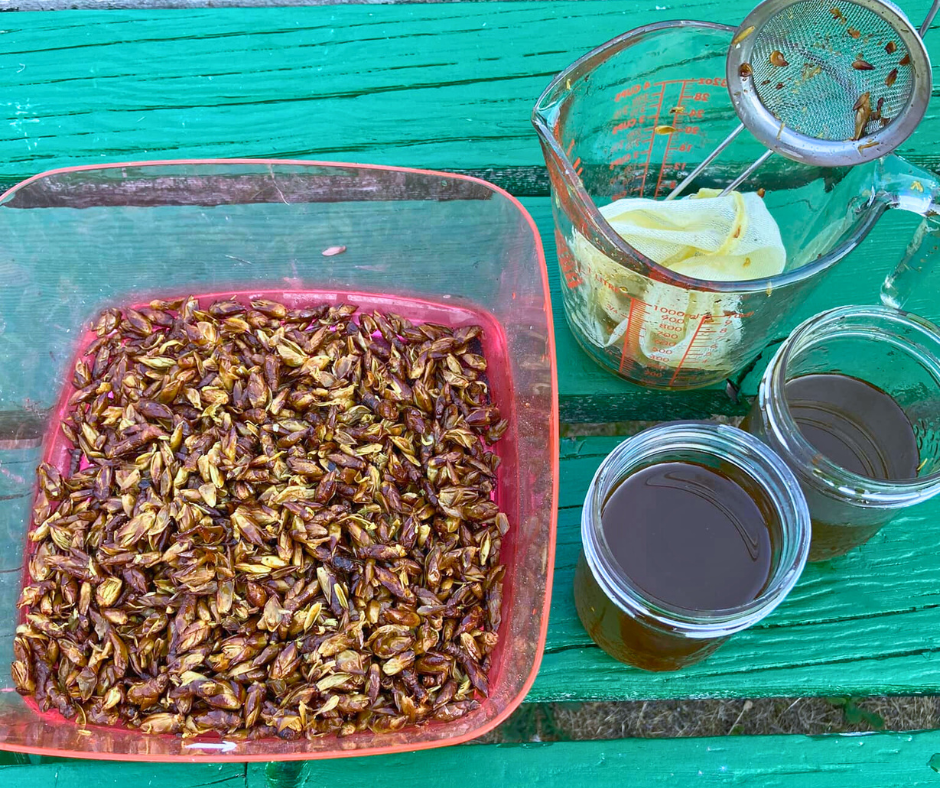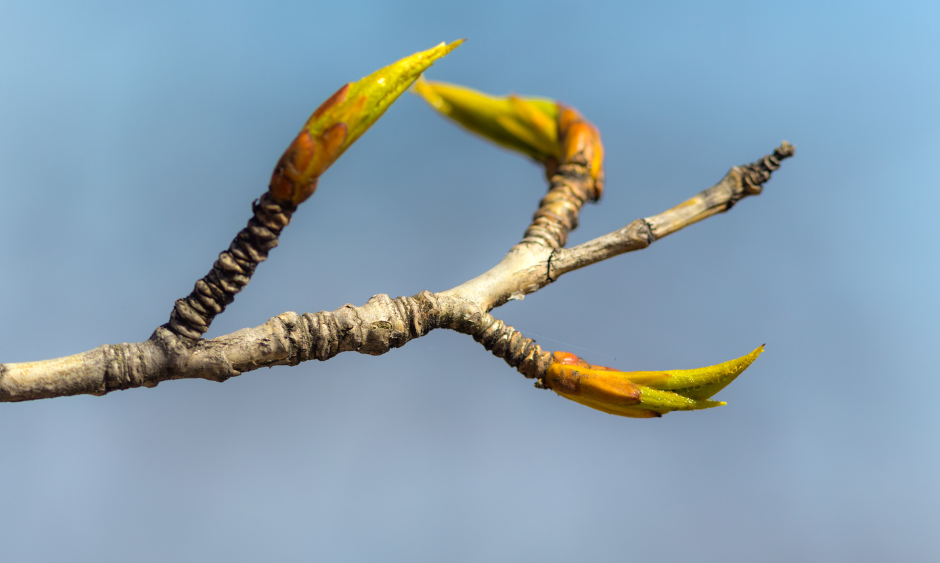No scent marks the arrival of Spring on Vancouver Island more distinctly than that of the Poplar. Also known as Cottonwood, its sweet, vanilla smell invigorates the spirit and inspires thoughts of preparing garden beds and flinging open all the windows to let in those first glorious rays of spring sun.
Poplar buds contain high amounts of oleoresins which give them their distinctive aroma and unique medicinal qualities. Poplar bud oil, also known as “Balm of Gilead” has been used as a medicine for thousands of years. In fact, the term “Balm of Gilead” originates from the Bible where it is mentioned as a valuable commodity, highly regarded for its medicinal and aromatic properties.
Throughout history, Balm of Gilead oil has been highly regarded for its healing properties. It was used in traditional medicine for a wide range of ailments, including wounds, bruises, skin irritations, and respiratory issues. Additionally, it was prized for its aromatic qualities and was often included in perfumes, incense, and ceremonial practices.
The knowledge and use of Balm of Gilead oil spread beyond the Middle East to Europe and other parts of the world through trade routes and cultural exchanges. However, as with many traditional remedies, its popularity waned with the advent of modern medicine and pharmaceuticals.
In contemporary times, there has been renewed attention to the therapeutic potential of Balm of Gilead oil.
- Analgesic effects: Poplar bud oil is considered a “rubefacient”, bringing warmth and blood flow to tense, sore muscles and joints and areas of poor circulation and helping to resolve inflammation and swelling. It makes a wonderful balm for relieving various types of pain, including joint pain, muscular pain, and headaches.
- Respiratory support: Poplar bud oil rubbed on the chest can help to ease respiratory symptoms such as congestion, coughs, and sinusitis. Its expectorant properties help to loosen phlegm and open the airways.
- Wound healing: Poplar bud oil has mild vulnerary properties helping to heal up minor skin irritations, eczema, and dry or chapped skin. Additionally, its antimicrobial properties can aid in preventing infections in minor wounds and cuts.
- Emotional well-being: The essential oils of poplar bud oil are known for their calming and grounding effects on the mind and emotions. It may help reduce stress, anxiety, and nervous tension when diffused or inhaled.
Vancouver Island is home to several species of poplar trees. By far the most common is the Black Cottonwood (Populus balsamifera ssp. trichocarpa). This tree is part of the wider Populus balsamifera species, commonly known as balsam poplar or black poplar.
The best time to harvest poplar buds is as soon as they start to open. At this point the energy and medicinal quality is at its peak. Ethical harvesting best-practice is not to cut any branches off the tree and take only what you know you can use. After a windstorm, blown-down branches can often be found on the ground around a big poplar.
Recipe for Poplar Bud Oil (Balm of Gilead)
Materials
- Gloves (or be prepared for your fingers to get really sticky!)
- Mason jar with lid
- Nut-milk bag or very fine sieve
- Olive oil or other carrier oil
 Instructions for Poplar Bud Oil
Instructions for Poplar Bud Oil
- Fill a mason jar with poplar buds, leaving a little room at the top. Pour in enough oil to cover the buds completely.
- Cover the macerating jar with cheesecloth to allow any moisture to escape and reduce risk of mold store away from sunlight for at least one month (the longer the better).
- Strain the oil into storage containers. Remember to squeeze all of the oil out of the buds! Storage containers should ideally be tinted or opaque
- Store in a cool, dark place for up to a year or in the fridge to extend shelf-life.
Instructions for Poplar Bud Salve
- Gently warm ½ cup of Poplar Bud Oil in a double boiler
- Add ½ oz beeswax, finely chopped or as pellets and allow it to melt completely
- Pour the mixture into jars and let cool
Enjoy!
